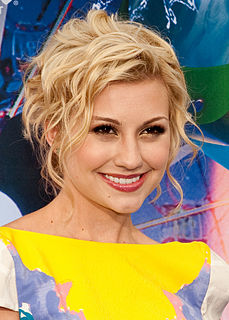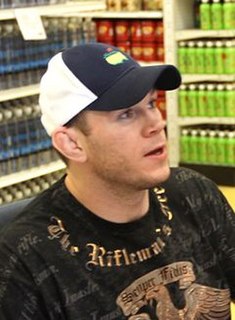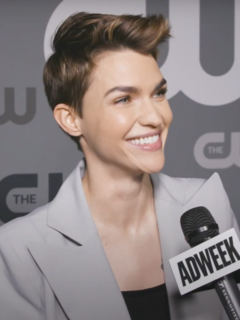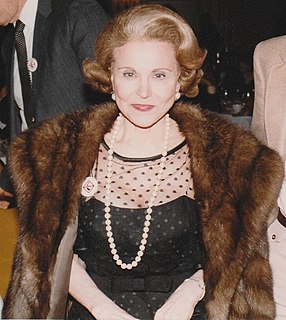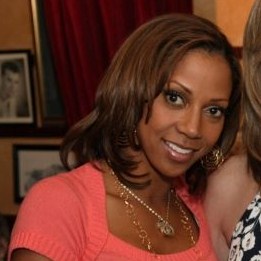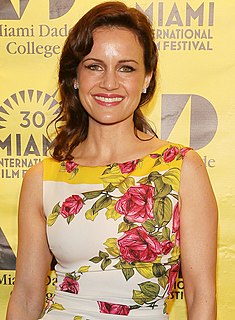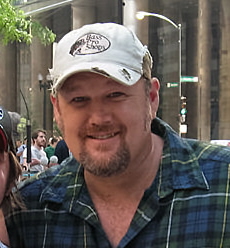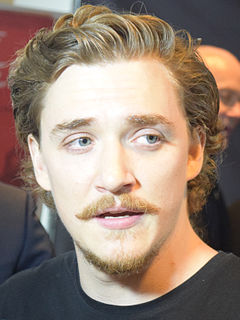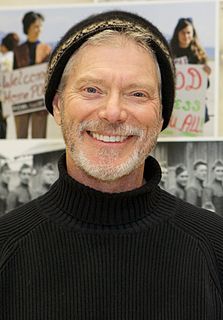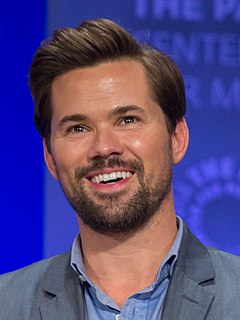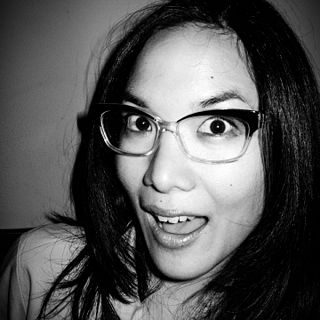A Quote by Sean Hepburn Ferrer
Once in a while, people would say, 'Look, your mom's on TV.' But as a young kid, you don't really worry about those things so much.
Related Quotes
For young women, I would say don't worry so much about your weight. Girls spend way too much time thinking about that, and there are better things. For young men, and women, too, what makes you different or weird-that's your strength. Everyone tries to look a cookie-cutter kind of way, and actually the people who look different are the ones who get picked up. I used to hate my nose. Now I don't. It's OK.
If you make the decision to send your kid to public school don't even look at private schools. Just shut the door. Just turn off the TV. And then you don't even have to worry about preschool. You have to worry about what's good for your kid, but you don't have to worry about how to position yourself.
It’s one of those things where when you’re training and fighting, you can’t worry about your bills, your mortgage, did you get your girlfriend pregnant, your pet’s cancer, or anything. Nothing else matters but that dude trying to kick you in the face or throw you on your head or trying to rip your arm out of the socket. It becomes a singularity of purpose, which an ADD kid like me rarely gets. I like that moment of clarity in fights, and I truly have that. I lose myself in the details of those 15 minutes and you don’t worry about what people think of you.
Every once in a while someone says, 'You can't really learn anything, if you're really a writer then you wouldn't need to do it.' But I think what people need is the sense of not being alone. They go to MFA programs to be part of a community of people who care, and then you start caring about your friend who is trying to edit a magazine and your other friend who is stuck in the middle of her poem. There you have all kinds of things to worry about besides your own success.
Nobody gets to live life backward. Look ahead; that is where your future lies. Opportunities are usually disguised as hard work, so most people don't recognize them. People who care about each other enjoy doing things for one another. There are really only three types of people: those who make things happen, those who watch things happen, and those who say, What happened?
I was a really, really serious kid. And a really kind of controlling kid. Like I had things that, now, people would say are like - there's a name for many disorders as we know - but I would say, "If I pick this rubber band, then this will happen." It was that kind of want to control things, which I think all kids have to some extent.
When I started doing my act, I wasn't married and didn't have kids. I was probably 29 years old. Some people say that's not a kid, but when you're 50, and you look back to when you were 30, you were a kid. You look back on your 30s and think, "I was an idiot!" But I would just do things then I thought were funny. I couldn't have cared less who thought anything about it.
In TV, kid roles are like this: You're either in a couple minutes of an episode playing somebody's kid, or you get in these procedurals where you're crying or you're playing a witness or you're playing a crazy person. Every once in a while you get a big guest star role, but there's a formula to those TV shows.
I'm happy to say I haven't received that much negative feedback. I'm always thrilled when I get feedback from young people, particularly from The New Normal, young gay people - when they say they want that when they grow up, that means a lot to me. As a kid growing up, I didn't really have a lot of gay role models on television, so it's nice to be part of a movement that gives some more of those.
My dad was obviously a really quirky, unconventional Asian man who didn't care about what other people thought. When he would fight with my mom, he would be really dramatic. He would be like, 'Devil, get away, for I am God's property.' He would say crazy things that were so melodramatic but so theatrical and funny.



